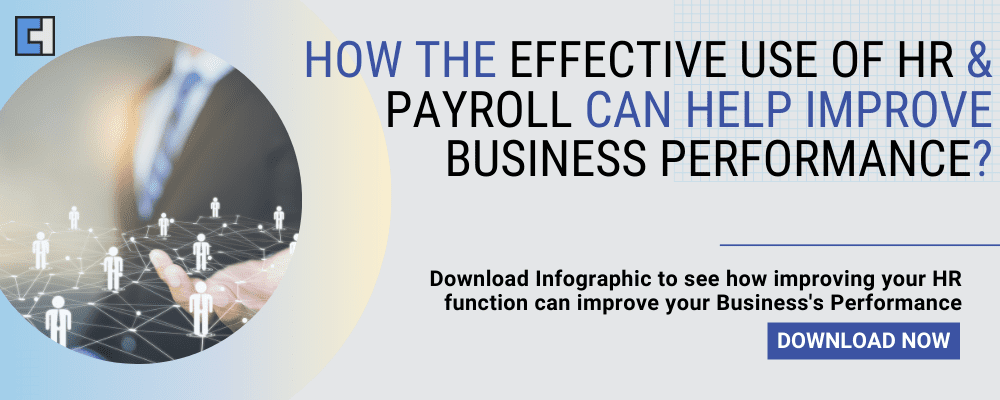A Complete Guide to Payroll and Payroll Accountants
What is Payroll and PAYE?
Businesses with employees need to understand what payroll is and how its meaning can vary depending on the context. This article will help with payroll compliance but it is advisable to seek help from an expert payroll accountant.
What is payroll:
- It can refer to the employees you pay in addition to employee information.
- It can refer to the amount you pay employees during each payment period.
- It can also refer to the process of calculating as well as distributing wages and taxes.
PAYE is a system used by HMRC (Her Majesty’s Revenue and Customs) to collect Income Tax as well as National Insurance from employment. An employer normally has to operate PAYE as part of their payroll operations.
Who needs to operate it?
When it comes to operating payroll, there are three options. Let’s take a look at them.
- You can do it by hand – This is the most time-consuming and complicated option amongst the three listed here.
- You can use a payroll accountant service or a bureau– Outsourcing payroll to an accountant is great for freeing up your time to focus on other things. The accountant you hire will take care of the entire process for you. This is usually the most expensive option out of the three. However, this is also the most complete alternative as the accountant will handle everything except making payments to your employees; this can also be requested if required. However, a BACS payment request should be sufficient and simple enough to process.
- You can use software – Using software is quite commonplace as they are relatively inexpensive. The software will automate most of the process which frees up a lot of your time. Payroll business software can automatically calculate taxes once setup properly. In addition to this, some of them even turn in your taxes for you. Warning: Payroll software has to be set up properly and can end up with huge errors if you are unsure about the use and setup of the software. Speak to a Payroll Accountant agent if you want to set up your process effectively.
Key things to consider before starting
There are a couple of things you should think about before operating payroll. Let’s take a look at some of them.
- Timing of conversion to software – One of the most important things that you need to understand before operating payroll is deciding when to implement a solution or move from one system to another. If you’re thinking of a mid-year conversion, a good time to start the process is in the second quarter. Another fine option is to convert at the end of the year.
- Unify payroll with HR and Time Tracking – When thinking about conversions, you must look at whether the system is working in tandem with core HR as well as attendance software. You’ll enjoy a range of benefits, such as greater user flexibility, reduced errors, eliminated duplicate entries, decreased labour costs, increased visibility into company trends and metrics, and so on, when payroll, core HR, and time tracking data is stored in a centralized database.
- Tax compliance – PAYE tax compliance rules are always changing which means that it’s extra important to use a tax compliance solution to keep track of these changes.

The Setup Process
If you’d like to operate PAYE yourself, there are certain tasks you’ll need to complete in order to pay your employees for the first time. You can even choose how often and when you’d like to pay your employees. Let’s look at how you can set up your PAYE.
- Register as an employer – You’ll need to register as a recruiter with HM Revenue and Customs (HMRC) and obtain a login for PAYE Online. You will be issued with an Employer reference number and an accounts reference number once your registration is complete.
- Decide on software – You’ll then need to decide on software to record your employee’s details, calculate pay as well as deductions, and finally report to HMRC. Alternatively, you can decide on hiring a good Payroll Specialist or an Accountant who should help you set up your PAYE without going through the hassle of setting your own software. Try searching for a good accounting firm, business accountant or payroll bureau.
- Collect as well as keep records – All of your records must be stored in one place and kept safely.
- Record pay as well as deductions and report to HMRC – You’ll need to complete this step before the first payday.
- Pay HMRC – The tax and National Insurance you owe must be paid to HMRC.
In addition to all of the above, you’ll also have to finish a couple of annual reports and tasks in order to prepare for the next year, which begins on the 6th of April.
Key tips before you operate
The following tips will help you operate your payroll efficiently.
- Classify workers correctly – Your workers must be classified as either employees or independent contractors. This is because the process for each is different. Suppose you are a contractor or employ contractors. In that case, you should locate competitive contractor accountants, as there are compliance requirements for both contractors and contractor agencies, which they should be able to help you with.
- Automate your payroll – Using a manual system can result in a lot of mistakes. For example, the wrong number might be entered into the calculator, a number might be recorded in the wrong spot, or something might be forgotten in the payroll process, and so on.
- Track time and attendance – You must make sure that you carefully track how much time your employees work for. This is extremely important for employees who earn hourly wages and those who are eligible for overtime wages. You will also need to record holidays and also understand the statutory pay such as Statutory Maternity Pay (SMP), Statutory Sick Pay (SSP) etc. There are new pay slip rules for employers who are pay employees hourly, read our payslip article for more information.
- Keep track of payroll updates – Payroll is constantly changing because the government is always passing new laws. Make sure you put aside some time to keep track of all of these changes or use a good accountant in London or a competitive Payroll bureau service in London to do this for you instead.
- Conduct payroll audits – Regular audits must be a part of your processes in order to make sure that the records are accurate. Audits can be conducted quarterly or annually.
- Auto-Enrolment – Auto-enrolment is a key part of payroll now; you are required to check the eligibility of each employee and auto-enroll them in a suitable pension scheme if required.
How to find a Payroll Specialist
When looking for a specialist, there are a couple of things you should keep in mind so that you find someone who fits the bill.
Payroll experience
The process is not a walk in the park. It can be quite complex and different for different employers with different payment structures. Look for an accounting firm or a payrolls bureau that are experts at PAYE and have robust processes in place to manage your payroll with the utmost efficiency.
Attention to detail
Payroll Accountants should not make mistakes. When assessing payroll accountants, review their Qualifications, they should possess qualifications such as CIPP, ACCA or ICAEW. Attention to detail is also a vital skill and is something you mustn’t back down on.
Experts
Payroll experts should be well aware of changes in legislation and should be proficient in helping you fulfil all your regulatory requirements. These will include but are not limited to things such as issuing Payslips as per the latest Payslip legislation 2019, issuing P11D’s, P60, P45’s and other statutory payments.
Qualification a Payroll Specialist should possess.
The CIPP (Chartered Institute of Payroll Professionals) manages all payroll qualifications in the UK. An Accounting firm which has qualified with ACCA or ICAEW will also have the required skills to help you process your payroll effectively.
There are plenty of other things that encompass the payroll process. Do plenty of research and talk to plenty of accountants such as our Accountants in London before taking any steps with regard to the payroll process. Our payroll services are designed keeping in mind all the points mentioned above and other factors which can impact your legislative requirements.
Clear House Accountants are payroll specialists and Accountants in London, we are the accounting firm nearby, the online accountants and the business advisors you are looking for. We cover services for all your business needs such as Accounting, Tax, Payroll, VAT, Business Advisory and Business Growth. Contact us now to see how we can help you.









































































